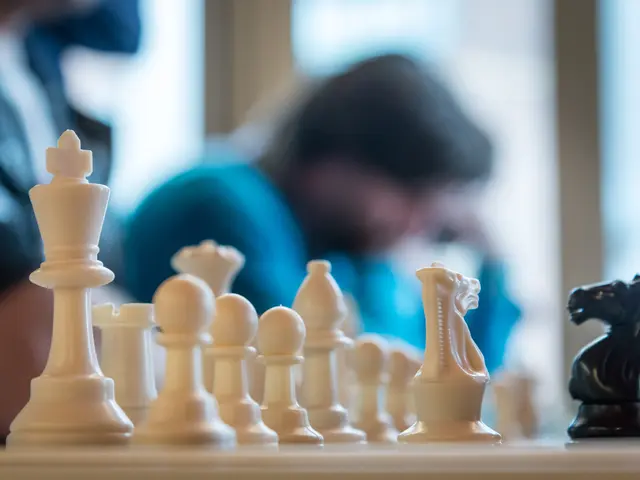'Record-breaking danger Approaches for Poker: Negreanu Issues Alert as Fresh Peril Looms'
The One Big Beautiful Bill Act (OBBBA), signed into law by Donald Trump on July 4, 2025, has introduced significant changes to gambling tax provisions that particularly affect poker players and other professional gamblers. Starting January 1, 2026, the IRS will limit the deduction of gambling losses to 90% of gambling winnings, whereas before gamblers could deduct 100% of their losses up to their winnings.
Current Status and Impact on Poker Players
The new policy, effective from January 1, 2026, for tax years after 2025, allows gamblers to only deduct 90% of their losses against winnings. This means even if a gambler breaks even, they may face a taxable gain on paper, resulting in paying taxes on "phantom income"—income they did not actually realize.
For instance, a poker player who wins $500,000 and loses $500,000 would previously owe no tax. Under the new law, only $450,000 of losses would be deductible, creating $50,000 of taxable income despite no actual profit. This policy could severely harm professional gamblers by taxing them on income that doesn't exist in reality, potentially undermining the viability of professional gambling careers in the U.S.
Actions by Daniel Negreanu and Others
Professional poker players such as Daniel Negreanu and high-profile figures like Phil Galfond have publicly criticized the provision, calling it potentially career-ending for professionals and harmful to casual gamblers. Attempts to roll back or amend the 90% loss deduction rule have so far been blocked by Republicans, despite bipartisan concerns and calls for reconsideration.
There is ongoing advocacy within the professional gambling community to raise awareness, lobby lawmakers, and seek legislative changes or reversals to restore the 100% loss deduction or otherwise alleviate the harsh tax consequences.
Summary
The OBBBA has codified a permanent tax change limiting gambling loss deductions to 90%, starting 2026, with major negative impacts on poker players. This change results in taxable "phantom income" for many gamblers even when no real profits occur.
Daniel Negreanu and other pro gamblers are actively opposing the provision, though legislative efforts to reverse it have so far failed due to political resistance. If the tax provision stays for 2026, high-stakes gambling and gambling for the average person will be negatively affected.
Russell Fox, a poker player and federally licensed tax professional, suggests there's a chance the tax provision could be reversed before it takes effect in 2026. Fox advises spreading the word and contacting representatives to help the cause.
Negreanu stated that he will do everything in his power to help ensure this tax provision does not become a reality or a problem. According to Fox, the chances of a reversal this year are only 25%.
This policy has become a significant issue within the gambling community, likely requiring continued advocacy and legislative attention to mitigate its impacts. Vegas, built on the dream of gambling, could be significantly hurt if the dream is removed or lessened by the tax provision.
- The changes in gambling tax provisions introduced by the One Big Beautiful Bill Act (OBBBA) will affect not only poker players but also other professional gamblers, as they can now only deduct 90% of their gambling losses against their winnings, starting from January 1, 2026.
- In response to these new tax provisions, casino-culture personalities such as Daniel Negreanu and Phil Galfond have voiced their concerns, arguing that this rule could severely harm their careers and even have negative effects on casual gamblers.
- The ongoing advocacy within the casino-and-gambling community aims to raise awareness, lobby lawmakers, and possibly reverse the tax provision to restore the previous 100% loss deduction or alleviate the harsh tax consequences for poker players and other gamblers.





